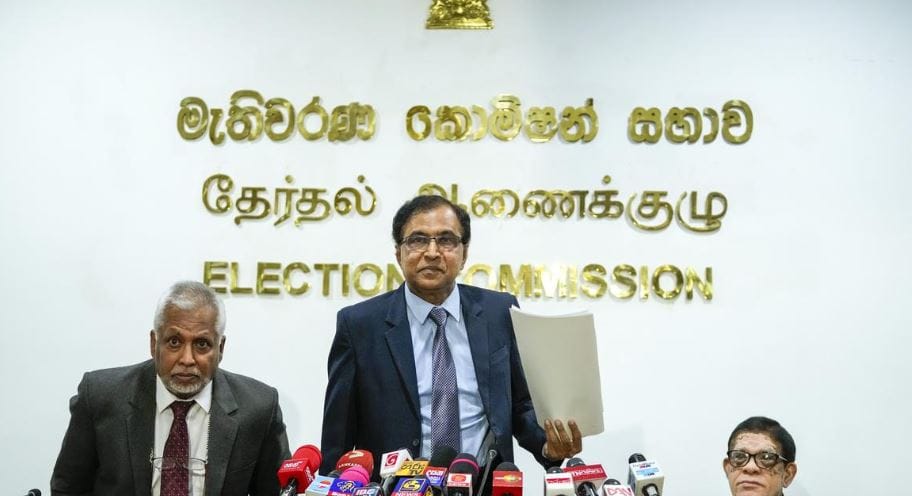Sri Lanka’s Presidential Election to Shape Economic Future
Sri Lanka is set to hold a crucial presidential election on September 21st, a pivotal moment that will determine the trajectory of economic reforms as the nation grapples with its most severe financial crisis in decades. The election’s outcome will have far-reaching implications for the country’s economic recovery and stability.
Wickremesinghe: A Contender Amidst Crisis
Incumbent President Ranil Wickremesinghe, who assumed office in July 2022 following the dramatic resignation of his predecessor Gotabaya Rajapaksa, has become the first candidate to formally declare his candidacy. Wickremesinghe’s tenure has been marked by efforts to stabilize the shattered economy, including curbing inflation, bolstering the rupee, and replenishing depleted foreign exchange reserves.
Economic Reforms and Challenges
With the support of a $2.9 billion International Monetary Fund (IMF) bailout program, Sri Lanka’s economy is projected to grow by 3% in 2024, a stark contrast to the contractions experienced in recent years. However, the road to recovery is fraught with challenges. Higher taxes, persistent inflation, and a sluggish job market have pushed a quarter of the population into poverty, fueling discontent that opposition leaders Sajith Premadasa and Anura Kumara Dissanayake are expected to leverage in their campaigns.
The Stakes for Sri Lanka’s Economic Reforms
The election’s outcome will significantly impact the fate of ongoing economic reforms. While Wickremesinghe has made strides in stabilizing the economy, opposition leaders have expressed intentions to revise the IMF program to alleviate the burden on Sri Lankans. However, analysts caution that reversing these reforms could jeopardize the fragile recovery and trigger a renewed crisis. The new government will need to navigate this delicate balance to ensure sustainable economic growth.
Table: Key Points from the Article
| Key Point | Description |
|---|---|
| Presidential Election Date | Sri Lanka’s presidential election is scheduled for September 21st, a critical juncture for the nation’s economic future. |
| Wickremesinghe’s Candidacy | Incumbent President Ranil Wickremesinghe is the first to declare his candidacy, highlighting his efforts to stabilize the economy amid the crisis. |
| Economic Challenges and Discontent | While economic reforms have shown progress, challenges such as higher taxes, persistent inflation, and a stagnant job market have fueled discontent among the population, which opposition leaders are likely to capitalize on. |
| Stakes for Economic Reforms | The election outcome will determine the future of economic reforms in Sri Lanka. Reversing these reforms could jeopardize the fragile recovery, while continuing them is crucial for sustained growth. The new government will need to carefully navigate this path to ensure the country’s economic stability and prosperity. |
| Importance of Continued Progress | Analysts emphasize the importance of continuing the progress made under the current economic reforms, as any deviation could lead to a renewed crisis. The newly elected government must prioritize the implementation and completion of these reforms to transform the economy and set it on a path toward long-term sustainability. |
Summary: Sri Lanka’s upcoming presidential election on September 21st is a watershed moment for the nation’s economic future. The contest between incumbent President Ranil Wickremesinghe and opposition leaders will determine the fate of ongoing economic reforms, which are crucial for the country’s recovery from its worst financial crisis. The new government will face the daunting task of balancing economic stability with the need to alleviate the hardships faced by the Sri Lankan people.
Soumya Smruti Sahoo is a seasoned journalist with extensive experience in both international and Indian news writing. With a sharp analytical mind and a dedication to uncovering the truth, Soumya has built a reputation for delivering in-depth, well-researched articles that provide readers with a clear understanding of complex global and domestic issues. Her work reflects a deep commitment to journalistic integrity, making her a trusted source for accurate and insightful news coverage.



